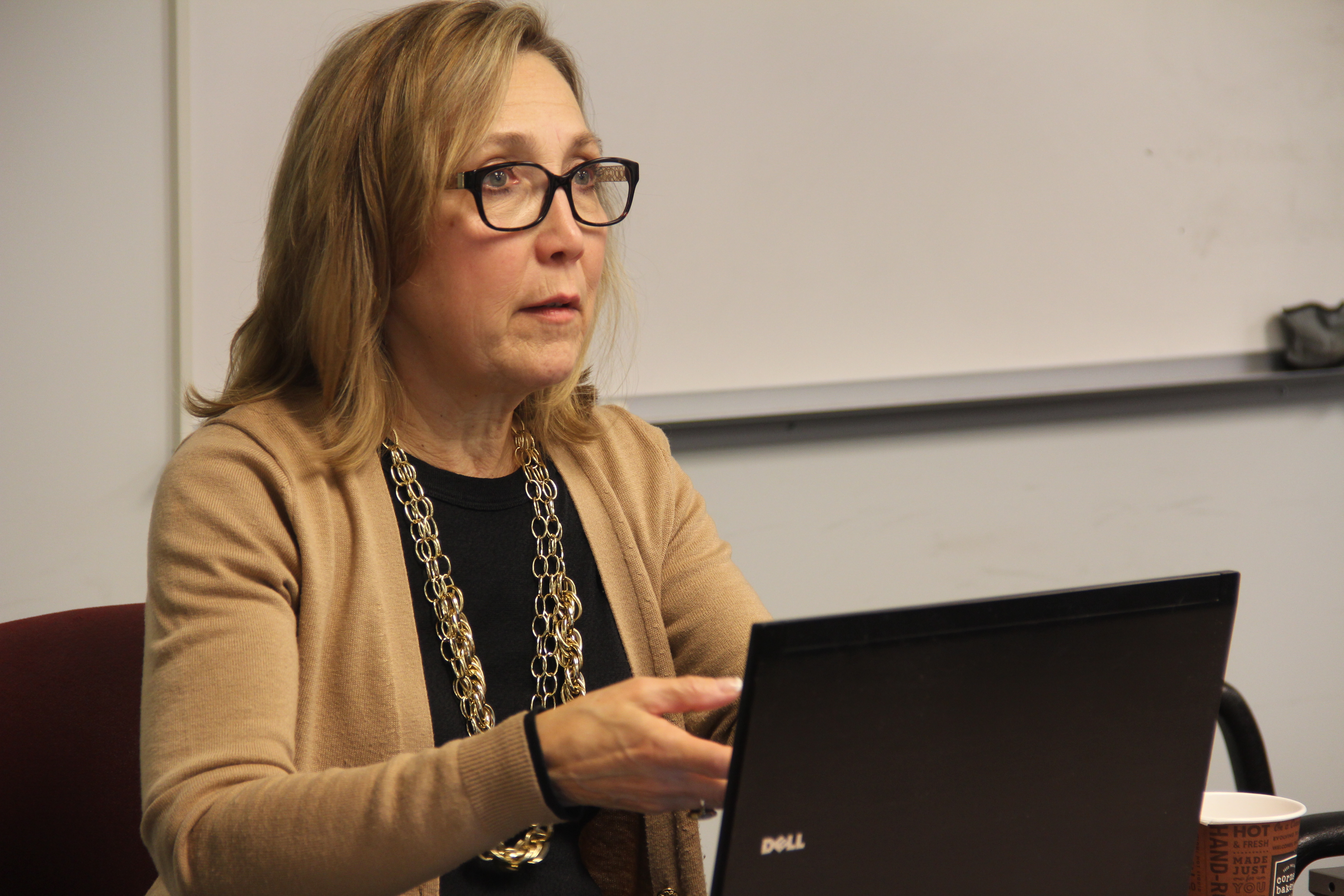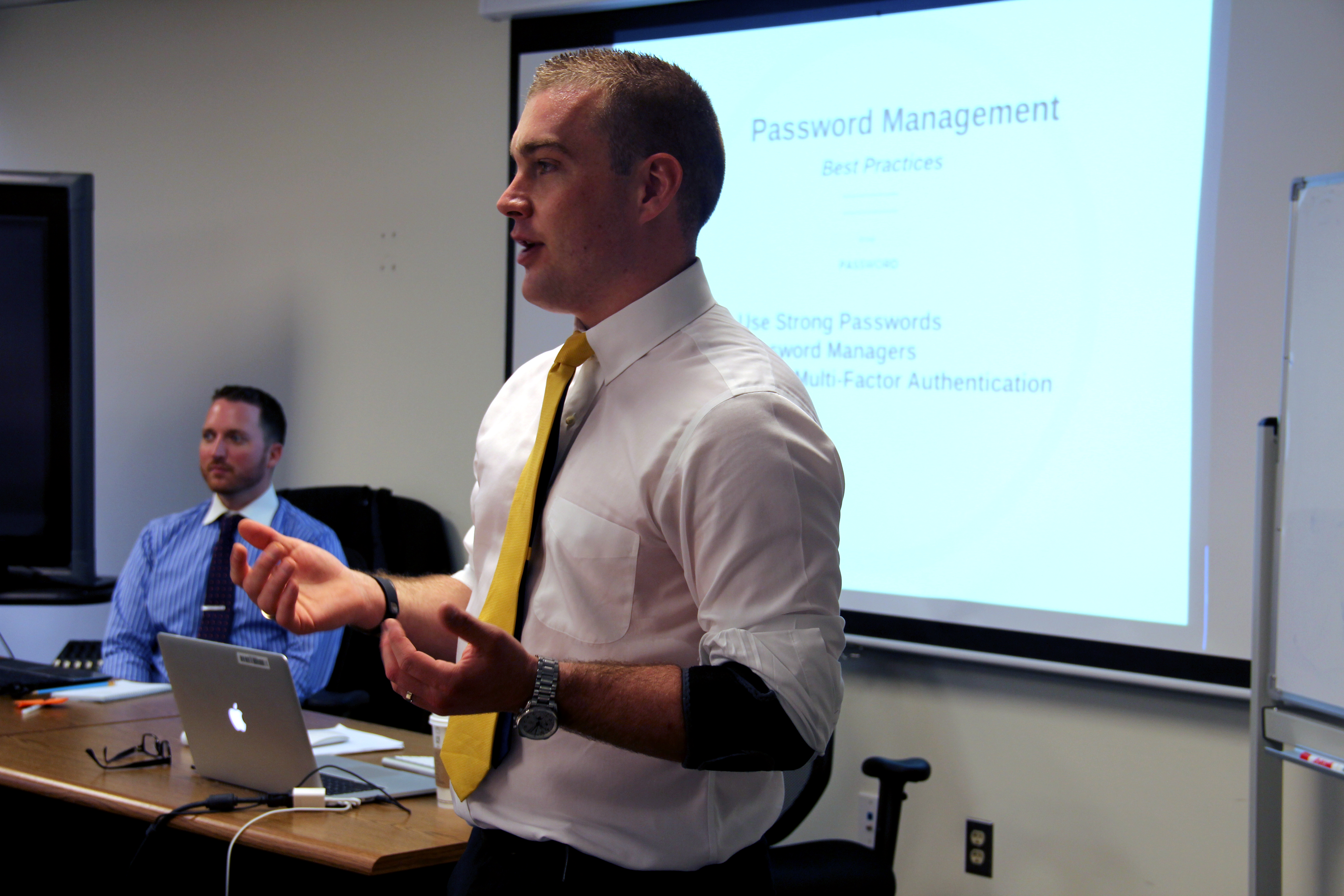WASHINGTON — The minds behind TestBed, Inc., a Virginia-based IT consulting firm specializing in IT planning, analytics, testing, prototyping and business advice for the public and private sectors, gave journalists a crash course in digital safety and encryption techniques at an April 3 seminar in Washington.
The daylong event, “Cyber Security Skill Workshop for Journalists: Sending Secure Email,” was co-sponsored by the Medill National Security Journalism Initiative and the Military Reporters & Editors Association, and held in the Medill Washington newsroom.
The seminar began with an introductory lecture on cybersecurity basics and common misconceptions about online privacy and security. Security-related superstitions, such as the idea that browsing in so-called “incognito” or “invisible” modes will keep your digital whereabouts truly hidden, were promptly dispelled.
TestBed’s Aaron Rinehart and David Reese then transformed the event into a hands-on lesson in PGP – an acronym for “Pretty Good Privacy” – as well as understanding other aspects of digital fingerprints (including how to create a public key, how to register it in the Massachusetts Institute of Technology’s PGP directory so that you are more widely contactable by those in the encryption know and how to revoke (or deactivate) a key for security reasons.
The program also included a brief introduction to the Tor network, a group of volunteer-operated servers that allows people to improve their privacy and security on the Internet. Tor, originally developed by the U.S. Navy, hides the route taken from a computer’s IP address to its eventual browsing destination.
Learn how Tor works via Medill reporter William Hicks’ helpful primer and infographic here.
When asked for the top three lessons he hoped attendees would take away from the event, Rinehart emphasized the importance of “good key management,” or not sharing your private PGP key with anyone, operating “under good security practices”(such as updating software and antivirus programs) and making email encryption a regular habit.
“Don’t compromise convenience for security,” Rinehart said in a post-workshop interview. “Try to make this something you can use everyday.”
The event drew a mix of reporters, security experts and students, which included military veterans and defense journalists.
Northwestern University in Qatar journalism student James Zachary Hollo attended the event to research encryption resources available for foreign correspondents and to report on the workshop for the Ground Truth Project in Boston, where he is currently completing his Junior Residency.
Hollo said the seminar gave him a better understanding of how to use PGP.
“I had sort of experimented with it before I came here, but this gave me a much better and deeper understanding of it, and I got to sort of refine my ability to use it more,” he said.
Hollo said he was surprised that many attendees came from military service or military reporting backgrounds, since, in his view, “one of the blowbacks against the NSA story [involving whistleblower Edward Snowden] was that it’s like reporting is like betraying your country.”









